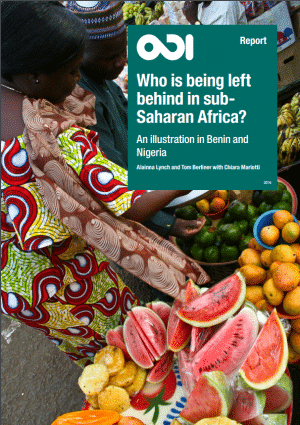
Policy highlights:
- The growth of African economies has been accompanied by rising inequality. Between 2006 and 2013 the average Gini-coefficient for Africa rose from 0.42 to 0.50.
- The case of Benin shows that ethnicity, living in an urban or rural region and the geographical location of a region are key determinants of poverty. This, in turn, determines access to basic services such as electricity and education.
- In Nigeria, ethnicity is the most important determinant of inequality. The Hausa and Fulani comprise over 75% of the poorest quarter of the population; the Yoriba are relatively rich.
- Strategies to tackle specific group disadvantages have proven effective in reducing inequality. Examples of such strategies include decentralized spending patterns, employment support and integrated land rights.






